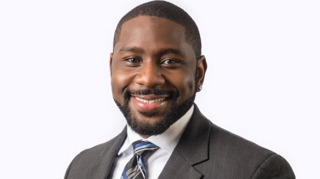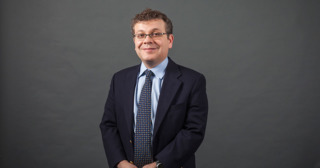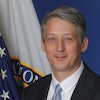The sociopolitical climate on U.S. college campuses continues to be at the forefront of national attention as student protests continue, tensions rise, lawsuits are filed, and commencement ceremonies are disrupted. Dr. Demetri Morgan
Dr. Demetri Morgan
Over the last couple of weeks, campuses have seen a prolific eruption of student protests nationwide, many in the form of tent encampments that have subsequently faced attempts at dispersal by police in riot gear.
These protests – a wave that accelerated because of the April 17 encampment and subsequent police crackdown at Columbia University – have largely proclaimed that they are in support of Palestine and are making asks such as for a ceasefire in the region and for universities to divest from companies with ties to Israel.
Reports of police using tear gas, and zip ties to disperse and arrest demonstrators have made the rounds as universities justify requesting police intervention by citing that such encampments disrupt university operations and pose safety concerns. Colleges have threatened protesters with suspension and expulsion for refusing to dismantle their tents, conducting sit-ins, and occupying and barricading campus buildings.
More than 150 schools have seen pro-Palestinian protests on their campuses since April 17. These demonstrations have resulted in more than 2,000 arrests of students, faculty, and some people not from the schools, with Columbia having the most with 220.
Over the weekend, more than 20 protesters were arrested at the University of Virginia after police used pepper spray and riot shields to disperse those at the encampment.
There have also been questions surrounding the public university’s own policy which allow for “recreational tents,” a policy that was allegedly changed on May 4, four days after protests began on campus, one day after said protesters began pitching tents, and the same day police arrived to clear the camp out.
The school claims that it was unaware of the inconsistency between its policies and its posted guidelines and that a change was made to correct the inconsistency.
On Monday, police arrested 64 people while they dismantled a protest encampment at the University of California, San Diego. According to the school, 24 of the arrested were unaffiliated with the school.
Israel’s military operations in Gaza and the West Bank after Hamas’ Oct. 7 attack – an attack that comes as part of a decades-long geopolitical struggle in the region – has killed 34,000 people so far. And this Monday, the Israeli government has announced that its leaders have approved military action in the southern Gaza town of Rafah.
Lawsuits filed
In response to these institutional responses, some students and interested parties have filed lawsuits.
One was levied against the Arizona Board of Regents (ABOR) on April 30 after plaintiffs claimed that Arizona State University infringed on the free speech rights of student protesters arrested for trespassing by barring several of them from campus – stopping them from accessing housing, classes, or extracurriculars – until it is determined whether they violated ASU policies.
“Since the April 27 arrests, there have been four more pro-Palestine protests on campus without issue,” a May 2 ASU public statement read, bumping arrest numbers there up to 20. “The April 26 encampment was more than a protest.
“There were multiple violations of university or ABOR policy including tents, overnight presence, creating a university disturbance and being in a reservable space that wasn’t reserved by ASU students, per policy. The unlawful assembly remained well past the 11 p.m. cutoff time established by policy.”
The students’ later request for a preliminary injunction to lift their suspension was then denied by a district judge a few days later.
In Indiana, the state’s American Civil Liberties Union (ACLU) filed suit against Indiana University on May 3, alleging that the school violated the First Amendment in its banning of three protesters from campus for a year. Of the three – a tenured faculty member, a graduate student, and a Bloomington resident – the first two have since been granted stays on their bans.
Opponents to these protests have also made legal attempts of their own, one being a lawsuit brought by American-Israeli survivors of Hamas’ Oct. 7 attack in Israel against the American Muslims for Palestine (AMP) and the National Students for Justice in Palestine (SJP).
SJP is cited by Reuters as one of the groups organizing the student protests, alongside Jewish Voice for Peace. SJP has been criticized by opponents, including the Anti-Defamation League, who say that the group supports Hamas’ activities and celebrate terrorism.
According to the lawsuit – filed last Wednesday – both AMP and SJP are supporting Hamas via “their army of college students” who “intentionally instigated a mass culture of fear, threats, violence, and overt hatred to intimidate politicians and institutions for Hamas’s substantial benefit.”
Another lawsuit targets Northwestern University after the school reached an agreement with demonstrators on April 29. The agreement entails that, in exchange for protesters downsizing and adhering to some campus rules, the school will disclose its investments and dedicate money toward Palestinian students and faculty.
The Anti-Defamation League Midwest has called this agreement “reprehensible and dangerous.” But Northwestern’s President Michael Schill said it “[reduced] the risk of escalation” seen at other schools.
Filed in the Circuit Court of Cook County on May 1, the suit alleges that Northwestern – one of the first schools to relent – failed to ensure students’ safety and freedom from discrimination. According to the lawsuit, antisemitic iconography was visible on some protesters’ signs.
“The events of the past week laid bare Northwestern’s gross breach of these promises,” the lawsuit read. “Northwestern ignored those rules, opting instead to facilitate, encourage, and coddle a dystopic cesspool of hate.”
To note, Jewish students also took part in the protests, an occurrence that has not been exclusive to Northwestern. In the case of the demonstrations at the Evanston school, the local chapter of Jewish Voices for Peace organization had helped organize the encampment there, according to USA Today.
“How we think about free speech at a private, independent university is different than free speech protections at public institutions,” said Dr. Demetri Morgan, an associate professor of higher education at Loyola University Chicago. “One of the things that we talk with student activists about all the time is that the commitment to free speech, to academic freedom is sort of done, quite frankly, by the good will of the institution."
Morgan, who studies student activism, said those are not necessarily rights that have to be afforded to students.
"Legally speaking, it is not something that private institutions have to do,” he said.
Concessions made
Other universities have also reached compromises with student protesters. Brown University agreed to let some students meet with administrators to discuss the school’s investments and potential divestment from Israel-related parties, which would then culminate in a vote among Brown’s leaders.
At the University of Minnesota, protesters agreed to clear their encampment in exchange for being able to meet with university leaders and discuss divestment from some companies, in addition to the school disclosing its investments.
And Rutgers University met most of its campus protesters’ demands. The university agreed to provide more support for and content about Palestinians and got them to clear camp, though it refused to acquiesce to demands for divestment and for ending a partnership with Tel Aviv University.
Rutgers-New Brunswick Chancellor Dr. Francine Conway said that decisions to cut ties with Tel Aviv University or divest are “outside of [their] administrative scope.”
Historically, legal courts have deferred to educational institutions so long as institutions followed its established rules and policies “in good faith to further its educational mission,” Morgan said.
But with some schools now reaching agreements with protesting students in ways that go against their own policies, some may see these moves as institutions acquiescing too much and failing to uphold the protections they assured for their student body, Morgan said.
 Ilya SominWhile many of the protests have been reported to be peaceful, Ilya Somin, a law professor at George Mason University said that the seizure of campus property is alarming and demonstrates violence.
Ilya SominWhile many of the protests have been reported to be peaceful, Ilya Somin, a law professor at George Mason University said that the seizure of campus property is alarming and demonstrates violence.
“I dispute the idea [that the protests have] been largely peaceful,” Somin said. “An occupation of property and exclusion of other people is by its very nature not peaceful. It is not as violent as some other forms of violence must be, but nonetheless is a form of violence and coercion.”
Ceremonies disrupted
The ongoing protests and the disruptions they cause have forced some colleges and universities to cancel or scale down their commencement ceremonies.
Columbia announced Monday that it would cancel its university-wide May 15 ceremony but will still have smaller school-based ceremonies over the span of a few weeks.
And at Pomona College in Southern California, protesters have set up an encampment where construction for graduation is being done.
Schools that chose to proceed with their ceremonies were not spared from protests either. Students displayed Palestinian flags, chanted anti-war slogans, and conducted a walkout during the University of Michigan’s commencement ceremony on Saturday.

















